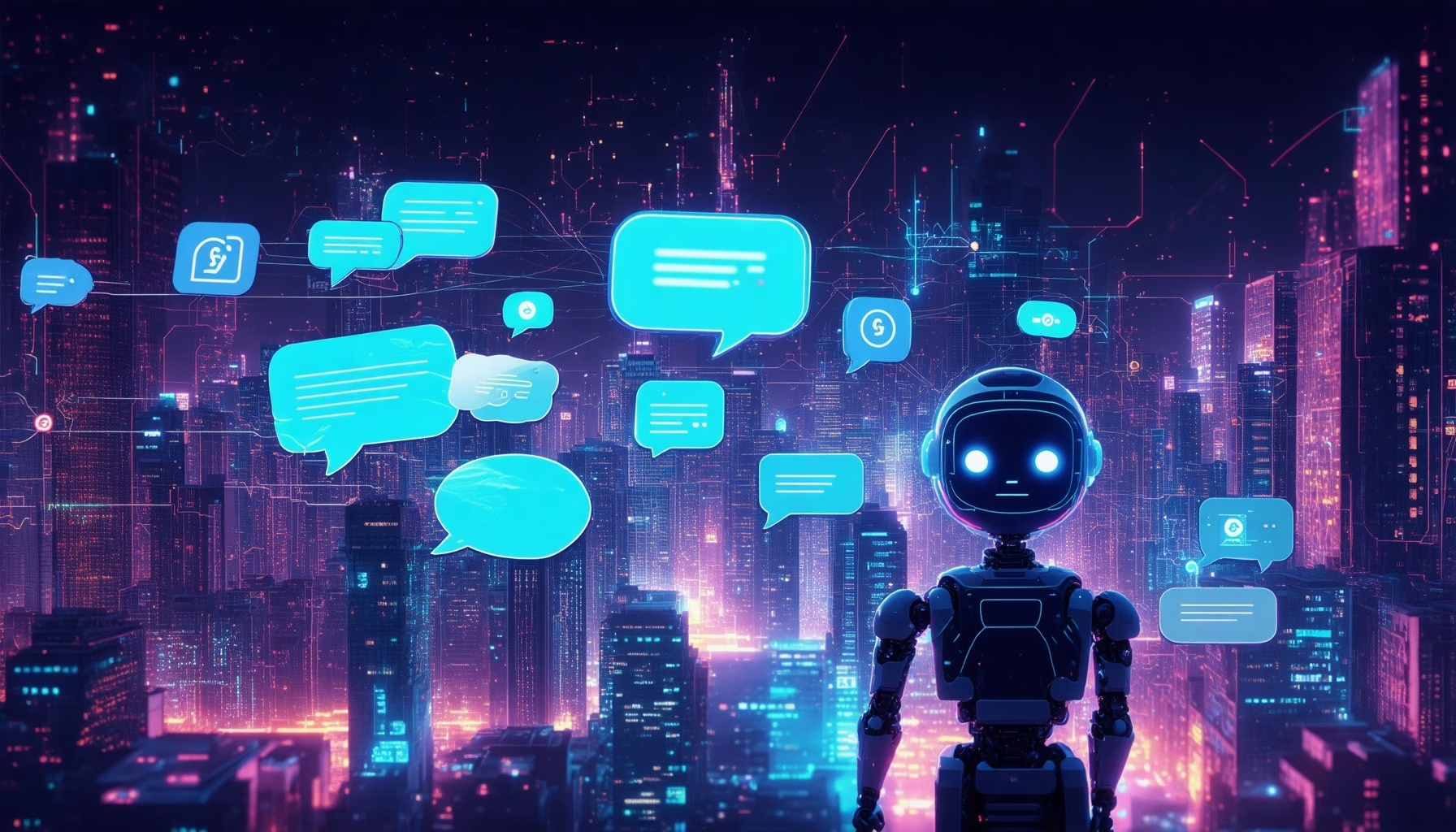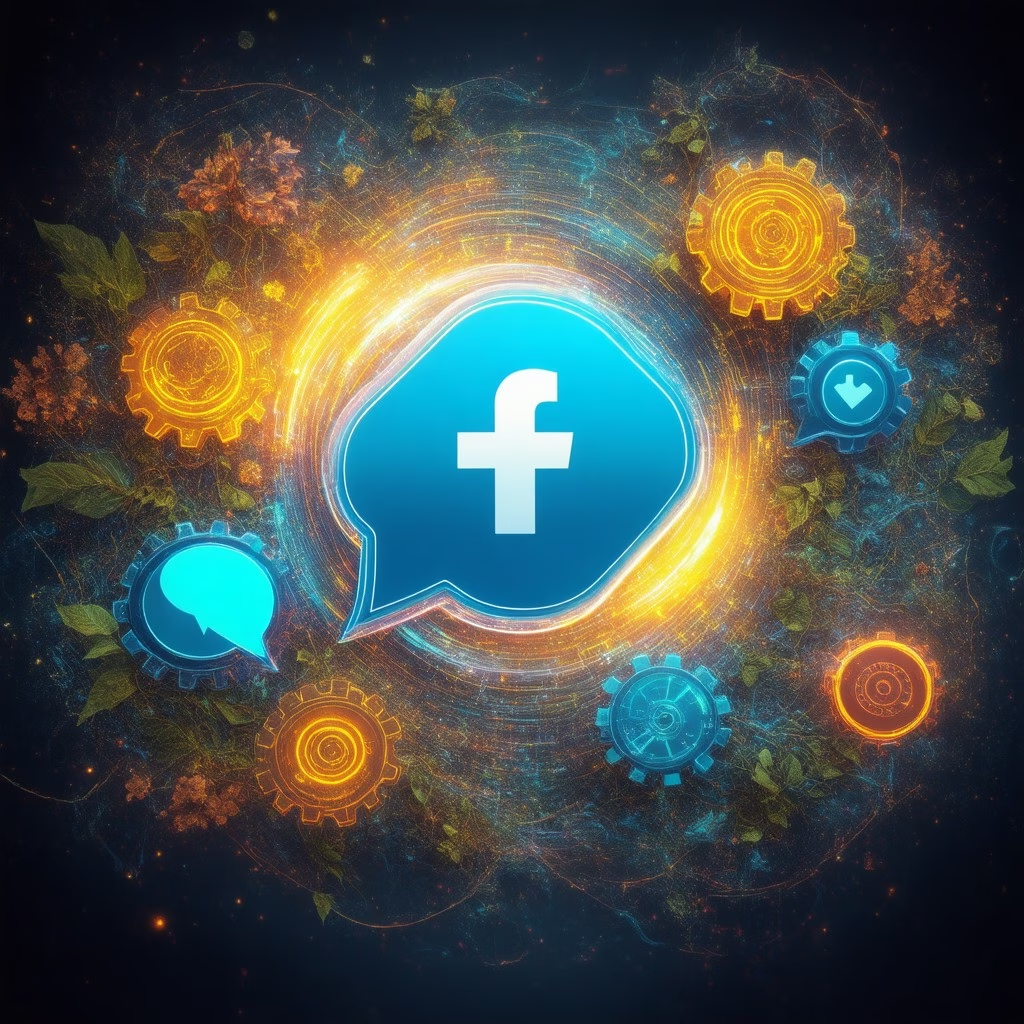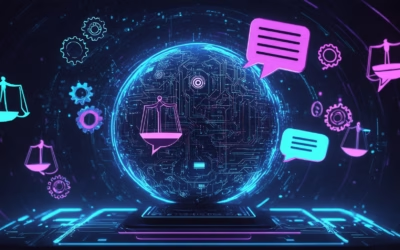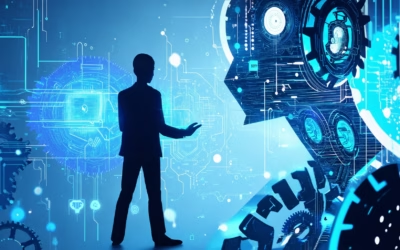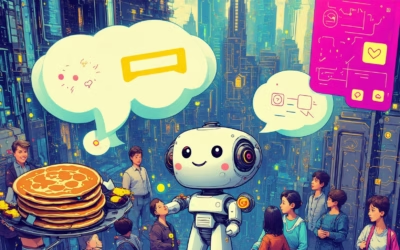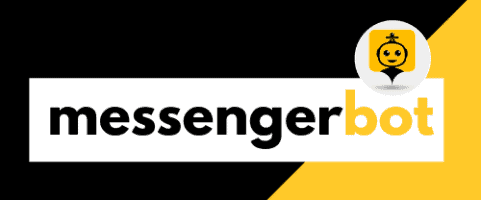Key Takeaways
- Enhance Customer Engagement: Facebook Messenger chatbots provide instant responses, improving customer satisfaction and engagement rates.
- Boost Sales: Personalized product recommendations through chatbots can lead to increased conversions and sales.
- 24/7 Availability: Automating customer support allows businesses to assist customers at any time, catering to global audiences.
- Streamline Operations: Chatbots reduce the workload on human agents, enabling them to focus on more complex tasks.
- Data-Driven Insights: Utilizing analytics from chatbot interactions helps refine marketing strategies and better target audiences.
- Cost-Effective Marketing: Investing in chatbots can lead to significant savings and improved ROI through enhanced efficiency and customer service.
Welcome to the future of customer engagement with our comprehensive guide on facebook messenger chatbot marketing. In today’s digital landscape, businesses are increasingly turning to Facebook Messenger chatbots as a powerful tool to enhance their marketing strategies. This article will delve into the essentials of what a facebook messenger chatbot is, and explore how these innovative tools can revolutionize your marketing efforts through automation and personalized interactions. We will cover key topics such as leveraging automation for improved customer engagement, integrating AI with facebook messenger chatbots, and crafting a successful facebook messenger marketing chatbot strategy. Additionally, we will provide real-world examples of effective facebook messenger chatbot marketing campaigns and offer insights into the costs associated with developing these bots. Whether you’re a business owner looking to enhance your marketing strategy or a marketer eager to learn about the latest trends in chat marketing, this guide will equip you with the knowledge and tools necessary to master facebook messenger chatbot marketing.
What is a Facebook Messenger chatbot?
Understanding the Basics of Facebook Messenger Chatbots
A Facebook Messenger chatbot is an automated software application that utilizes artificial intelligence (AI) to interact with users on the Facebook Messenger platform. These chatbots are designed to engage in real-time conversations, providing users with instant responses to inquiries, assistance with tasks, and personalized experiences.
Key functions of Facebook Messenger chatbots include:
- Customer Support: Chatbots can handle frequently asked questions, troubleshoot issues, and provide 24/7 support, significantly enhancing customer satisfaction and reducing response times.
- Product Recommendations: By analyzing user preferences and behaviors, chatbots can suggest products tailored to individual needs, improving the shopping experience and potentially increasing sales.
- Appointment Booking: Many businesses use chatbots to streamline the appointment scheduling process, allowing users to book services directly through Messenger without the need for human intervention.
- Order Processing: Chatbots can facilitate order placements, confirmations, and tracking, making the purchasing process more efficient for both businesses and customers.
- Personalized Content Delivery: Chatbots can send tailored messages, promotions, and updates based on user interactions, enhancing engagement and fostering brand loyalty.
According to a report by Business Insider, the use of chatbots in customer service is projected to save businesses over $8 billion annually by 2022, highlighting their growing importance in digital communication strategies. Furthermore, a study by Juniper Research indicates that chatbots will handle 75-90% of healthcare inquiries by 2025, showcasing their versatility across various industries.
In summary, Facebook Messenger chatbots are powerful tools that enhance user interaction, streamline business processes, and provide valuable insights into customer behavior, making them an essential component of modern digital marketing strategies.
The Role of Chatbots in Modern Marketing
In today’s fast-paced digital landscape, the role of chatbots in marketing cannot be overstated. Facebook Messenger chatbots serve as a bridge between businesses and customers, facilitating seamless communication and engagement. By integrating a Facebook Messenger chatbot marketing strategy, businesses can leverage automation to enhance customer engagement and drive conversions.
Chatbots not only improve response times but also provide businesses with valuable data insights. This data can be used to refine marketing strategies, personalize customer interactions, and ultimately boost sales. For instance, by analyzing user interactions, businesses can identify trends and preferences, allowing for more targeted marketing efforts.
Moreover, the integration of chatbots into marketing campaigns can lead to increased efficiency. Automated responses and workflows reduce the workload on human agents, allowing them to focus on more complex tasks. This efficiency is crucial for businesses looking to scale their operations while maintaining high levels of customer satisfaction.
In conclusion, the role of Facebook Messenger chatbots in modern marketing is pivotal. They not only enhance customer engagement but also streamline business processes, making them an invaluable asset for any marketing strategy.
How can businesses use Facebook Messenger bots automations in marketing?
Businesses can effectively utilize Facebook Messenger bots for marketing automation in several impactful ways:
- Customer Engagement: Messenger bots enable businesses to engage customers in real-time, providing instant responses to inquiries. This enhances user experience and increases customer satisfaction. According to a study by HubSpot, 82% of consumers expect an immediate response to marketing inquiries.
- Lead Generation: Bots can be programmed to qualify leads through interactive conversations. By asking targeted questions, they can gather essential information about potential customers, helping businesses tailor their marketing strategies. Research from Drift indicates that companies using chatbots for lead generation see a 30% increase in conversion rates.
- Personalized Marketing: Messenger bots can deliver personalized content based on user preferences and behaviors. By analyzing customer data, businesses can send tailored messages, promotions, and product recommendations, which can significantly boost engagement and sales. A report by Epsilon shows that 80% of consumers are more likely to make a purchase when brands offer personalized experiences.
- Automating Customer Support: Bots can handle common customer queries, such as order status and product information, allowing human agents to focus on more complex issues. This not only improves efficiency but also reduces response times. According to a study by Zendesk, 69% of consumers prefer chatbots for quick communication.
- 24/7 Availability: Messenger bots provide round-the-clock service, ensuring that customers can receive assistance at any time. This is particularly beneficial for businesses with a global customer base. A report from Salesforce highlights that 64% of consumers believe that 24/7 service is a key factor in their purchasing decisions.
- Integration with Other Tools: Facebook Messenger bots can integrate with various CRM and marketing tools, allowing businesses to streamline their operations and maintain consistent communication across platforms. This integration enhances data collection and analysis, leading to more informed marketing strategies.
Incorporating Facebook Messenger bots into marketing strategies not only enhances customer interaction but also drives efficiency and growth. For further insights, businesses can refer to sources like the Journal of Marketing Research and industry reports from platforms like Statista and Gartner.
Creating a Facebook Messenger Chatbot Marketing Strategy
To develop a successful Facebook Messenger chatbot marketing strategy, businesses should consider the following steps:
- Define Objectives: Clearly outline what you want to achieve with your chatbot. Whether it’s increasing sales, improving customer service, or generating leads, having specific goals will guide your strategy.
- Understand Your Audience: Conduct research to identify your target audience’s preferences and behaviors. This understanding will help in crafting personalized messages and interactions.
- Design Conversational Flows: Create engaging and intuitive conversational flows that guide users through their interactions. This can include welcome messages, FAQs, and product recommendations.
- Test and Optimize: Regularly test your chatbot’s performance and gather user feedback. Use analytics to identify areas for improvement and optimize the bot’s responses and functionalities.
- Promote Your Chatbot: Utilize various marketing channels to promote your Facebook Messenger chatbot. This can include social media posts, email campaigns, and website integration to drive traffic to your bot.
By following these steps, businesses can effectively leverage Facebook Messenger chatbot marketing to enhance customer engagement and drive growth.
How can businesses use Facebook Messenger bots automations in marketing?
Facebook Messenger chatbot marketing is revolutionizing how businesses engage with their customers. By leveraging automation, companies can enhance customer interactions, streamline communication, and ultimately drive sales. Here’s how businesses can effectively utilize Facebook Messenger bots in their marketing strategies.
Leveraging Automation for Enhanced Customer Engagement
Automation through Facebook Messenger chatbots allows businesses to provide instant responses to customer inquiries, significantly improving engagement rates. Here are some key benefits:
- 24/7 Availability: Chatbots can operate around the clock, ensuring that customers receive immediate assistance regardless of the time of day.
- Personalized Interactions: By utilizing customer data, chatbots can tailor responses, making interactions feel more personal and relevant.
- Efficient Lead Generation: Messenger bots can qualify leads by asking targeted questions, helping businesses identify potential customers quickly.
- Seamless Integration: Bots can be integrated with existing CRM systems, allowing for a smooth flow of information and better customer insights.
For businesses looking to implement these strategies, exploring a Facebook Business Messenger Bot Insights can provide valuable information on optimizing chatbot functionalities.
Creating a Facebook Messenger Chatbot Marketing Strategy
Developing a robust Facebook Messenger chatbot marketing strategy involves several critical steps:
- Define Objectives: Clearly outline what you want to achieve with your chatbot, whether it’s increasing sales, improving customer service, or enhancing brand awareness.
- Identify Target Audience: Understand who your customers are and tailor your chatbot’s tone and responses to resonate with them.
- Design Conversational Flows: Create engaging and intuitive conversation paths that guide users through their inquiries or purchases.
- Measure and Optimize: Regularly analyze chatbot performance metrics to identify areas for improvement and adjust your strategy accordingly.
For a deeper dive into creating effective chatbots, check out our comprehensive guide on building and monetizing your Facebook Messenger bot.
What is Facebook Messenger Marketing?
Facebook Messenger marketing is a strategic approach that utilizes messaging platforms, particularly Facebook Messenger, to engage with customers and prospects in a direct and personalized manner. This form of marketing capitalizes on the growing popularity of mobile chat applications, allowing businesses to communicate effectively with their audience through instant messaging.
Exploring the Benefits of Facebook Messenger Marketing
Utilizing Facebook Messenger for marketing offers numerous advantages that can significantly enhance customer engagement and drive sales. Here are some key benefits:
- Direct Communication: Messenger marketing enables businesses to send targeted messages, promotions, and updates directly to users, fostering a more personal connection.
- Automation with Chatbots: Many businesses implement Facebook Messenger chatbots to automate responses and provide instant customer service. These bots can handle inquiries, guide users through sales processes, and enhance user experience by providing 24/7 support.
- Rich Media Integration: Unlike traditional email marketing, Messenger allows for the inclusion of rich media such as images, videos, and interactive elements, making messages more engaging and visually appealing.
- Segmentation and Targeting: Businesses can segment their audience based on behavior and preferences, allowing for tailored messaging that resonates with specific groups, increasing conversion rates.
- Analytics and Insights: Messenger marketing provides valuable insights into user engagement and interaction, enabling businesses to refine their strategies and improve overall effectiveness.
Key Components of a Successful Messenger Marketing Campaign
To create an effective Facebook Messenger marketing campaign, businesses should focus on several key components:
- Personalization: Tailoring messages to individual users based on their preferences and past interactions can significantly enhance engagement.
- Automation: Implementing a Facebook Messenger chatbot marketing strategy allows for efficient handling of customer inquiries and improves response times.
- Engaging Content: Utilizing rich media and interactive elements can make messages more appealing and encourage user interaction.
- Testing and Optimization: Regularly analyzing campaign performance and making necessary adjustments can help improve results over time.
- Compliance: Ensuring that all messaging complies with Facebook’s policies and regulations is crucial for maintaining a positive brand image.
How much does Messenger chatbot cost?
The cost of a Messenger chatbot can vary significantly based on several factors, including the platform used, the complexity of the bot, and the specific features required. Here’s a comprehensive breakdown:
- Free Options: Many platforms offer free versions of their chatbots, which typically include basic functionalities. These are suitable for small businesses or individuals looking to engage with customers without a significant investment. Examples include Chatfuel and ManyChat, which allow users to create simple bots without coding.
- Monthly Subscription Plans: For more advanced features, such as analytics, integrations, and customer support, businesses may opt for paid plans. Prices can range from $10 to $300 per month, depending on the provider and the level of service. For instance, platforms like MobileMonkey and Tars offer tiered pricing based on the number of users and features.
- Custom Development Costs: If a business requires a highly customized chatbot, the cost can escalate significantly. Custom development can range from $3,000 to over $100,000, depending on the complexity and the development team’s rates. This option is ideal for larger enterprises needing tailored solutions.
- Additional Costs: Businesses should also consider potential additional costs, such as hosting fees, maintenance, and updates. Some platforms may charge extra for premium features like AI capabilities or multi-channel support.
- Return on Investment (ROI): While the initial cost may seem high, investing in a Messenger chatbot can lead to increased customer engagement, improved response times, and ultimately higher sales. According to a study by Drift, businesses using chatbots can see a 30% increase in conversion rates.
In summary, the cost of a Messenger chatbot can range from free to several thousand dollars, depending on the chosen platform and the specific needs of the business. For further details, consider exploring resources from reputable sources like HubSpot and Salesforce, which provide insights into chatbot pricing and effectiveness.
Understanding the Costs Involved in Messenger Chatbot Development
When considering the development of a Facebook Messenger chatbot, it’s crucial to understand the various cost components involved. Here are the primary factors that contribute to the overall expense:
- Platform Fees: Depending on the chosen chatbot platform, there may be subscription fees or one-time costs associated with accessing premium features.
- Development Time: The complexity of the chatbot will dictate how much time developers need to spend on its creation, which directly affects labor costs.
- Ongoing Maintenance: Regular updates and maintenance are essential to keep the chatbot functioning optimally, which can incur additional costs.
- Marketing and Promotion: To maximize the chatbot’s effectiveness, businesses may need to invest in marketing strategies to promote its use among customers.
Understanding these costs can help businesses make informed decisions about their investment in a Facebook Messenger chatbot marketing strategy.
What is the difference between a bot and a chatbot?
Clarifying the Terminology: Bots vs. Chatbots
The distinction between a bot and a chatbot lies primarily in their functionality and application within digital environments.
- Definition:
- Bot: A bot is a software application designed to automate tasks, often operating in the background without direct user interaction. Bots can perform a variety of functions, such as data retrieval, automated posting on social media, or executing scheduled tasks. For example, a web crawler bot indexes web pages for search engines.
- Chatbot: A chatbot is a specific type of bot that engages in conversation with users, typically through text or voice. Chatbots are designed to simulate human interaction and can be either rules-based, responding to predefined inputs, or powered by artificial intelligence, allowing for more dynamic and context-aware conversations.
- Functionality:
- Bots: These can be programmed to handle repetitive tasks efficiently, such as processing transactions, managing inventory, or gathering data from various sources. They operate based on algorithms and can run continuously without human intervention.
- Chatbots: These are primarily focused on user engagement and customer service. They can answer questions, provide recommendations, and assist with troubleshooting. Advanced chatbots utilize natural language processing (NLP) to understand user intent and provide more relevant responses.
- Use Cases:
- Bots: Commonly used in industries like e-commerce for inventory management, in finance for transaction processing, and in IT for system monitoring.
- Chatbots: Frequently employed in customer support, such as the Messenger Bot on Facebook, which helps businesses interact with customers in real-time, answering queries and guiding users through processes.
- Technological Basis:
- Bots: Often rely on simple scripts or APIs to perform tasks, making them less complex but highly efficient for specific functions.
- Chatbots: Leverage machine learning and AI technologies to improve their conversational abilities and adapt to user interactions over time.
In summary, while both bots and chatbots serve to automate processes, bots are broader in scope and functionality, focusing on task execution, whereas chatbots are specialized for interactive communication with users. Understanding these differences can help businesses choose the right technology for their needs.
The Importance of Understanding Chat Marketing Concepts
Understanding the differences between bots and chatbots is crucial for developing an effective Facebook Messenger chatbot marketing strategy. By leveraging the unique capabilities of chatbots, businesses can enhance customer engagement and streamline communication. For instance, a Facebook Business Messenger Bot can automate responses to frequently asked questions, allowing human agents to focus on more complex inquiries.
Moreover, recognizing the role of chatbots in chat marketing can lead to better implementation of marketing campaigns. Companies like HubSpot and Salesforce have successfully integrated chatbots into their marketing strategies, showcasing the potential for increased lead generation and customer satisfaction.
For those looking to dive deeper into the world of chat marketing, consider exploring a Facebook Messenger chatbot marketing course to gain insights into best practices and strategies that can elevate your marketing efforts.
Facebook Messenger Chatbot Marketing Examples
Facebook Messenger chatbot marketing has proven to be an effective strategy for businesses looking to enhance customer engagement and streamline communication. By examining real-world success stories, we can glean valuable insights into how various companies leverage this technology to achieve their marketing goals.
Real-World Success Stories of Messenger Chatbots
Numerous brands have successfully integrated Facebook Messenger chatbots into their marketing strategies. For instance, HubSpot utilizes chatbots to provide instant customer support and lead generation, significantly improving user experience. Similarly, Salesforce employs Messenger chatbots to assist users in navigating their services, resulting in higher customer satisfaction and retention rates.
Another notable example is Sephora, which uses a Facebook Messenger chatbot to offer personalized product recommendations and beauty tips, enhancing the shopping experience. This approach not only drives sales but also fosters a deeper connection with customers, showcasing the potential of chat marketing.
Best Practices from Leading Facebook Messenger Chatbot Marketing Agencies
To maximize the effectiveness of Facebook Messenger chatbot marketing, businesses should consider the following best practices:
- Personalization: Tailor interactions based on user preferences and behaviors to create a more engaging experience.
- Clear Call-to-Actions: Ensure that chatbots guide users effectively towards desired actions, such as making a purchase or signing up for a newsletter.
- Regular Updates: Keep the chatbot’s content fresh and relevant by regularly updating it with new information, promotions, and features.
- Analytics Monitoring: Utilize analytics tools to track user interactions and optimize chatbot performance based on data-driven insights.
By implementing these best practices, businesses can enhance their Facebook Messenger chatbot marketing strategy and achieve greater success in engaging their audience.

